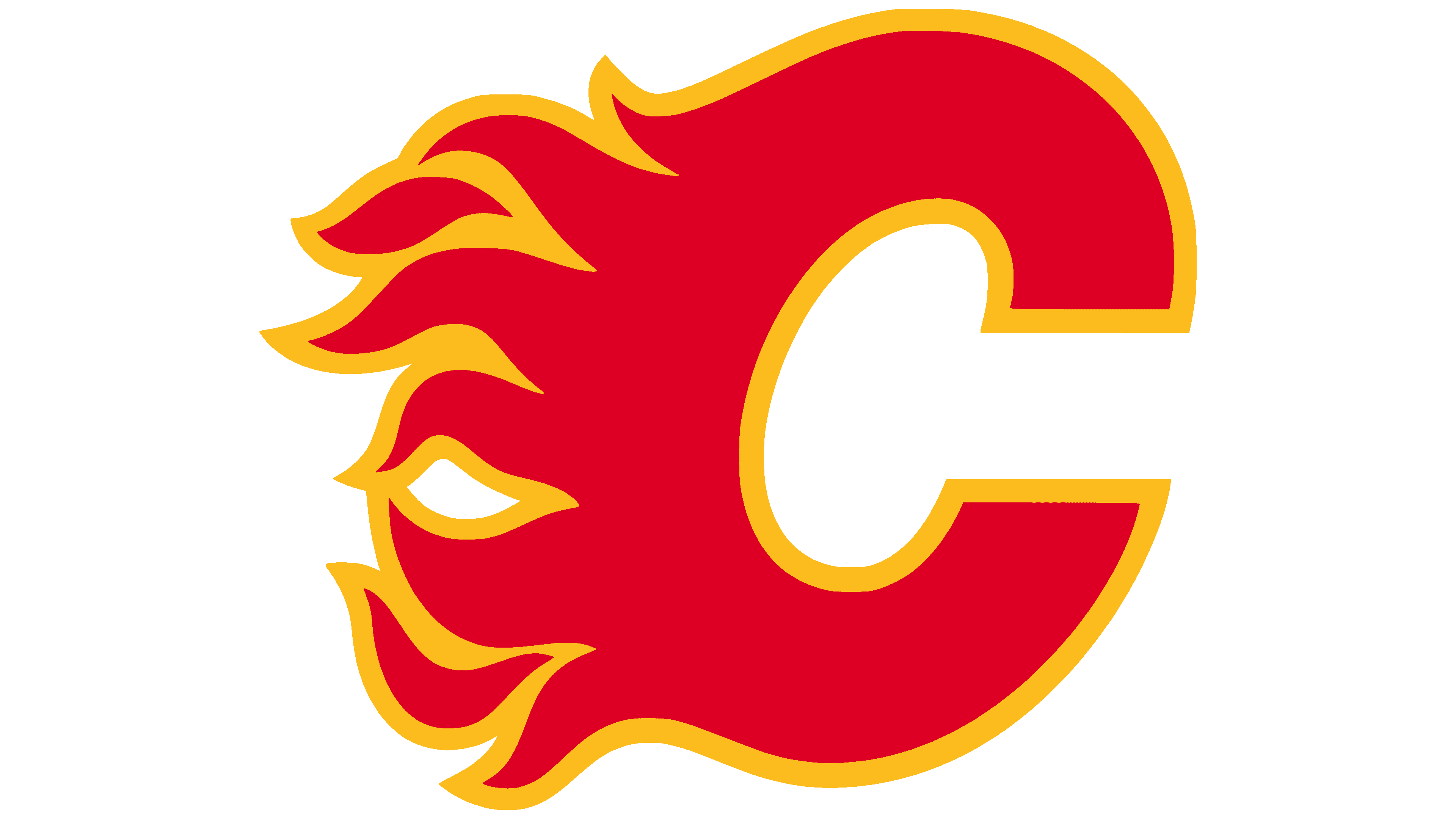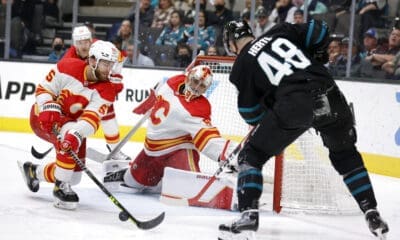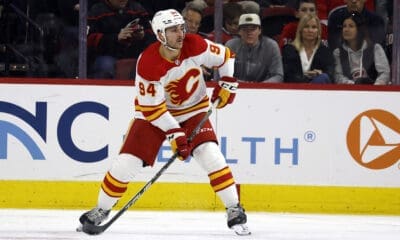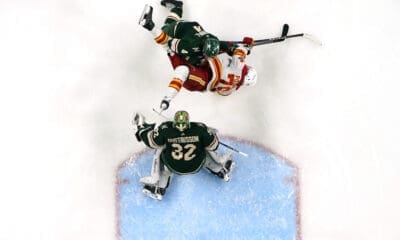Calgary Flames
Geoff Ward, Head Coach?
A numerical breakdown and comparison of the Flames play since Ward’s takeover.

November 27th / 2019 saw the removal of former Calgary Flames coach Bill Peters from behind the bench and the interim start of Geoff Ward’s tenure as the man with a plan. The Flames have a genuine shot at a playoff spot in the abysmal pacific division this season, and history has previously shown all it takes to go on a run is a chance (and maybe a hot goalie). This article will numerically analyze Wards performance as coach in comparison to what Peters did with the team, as well as comparing his results to other Pacific teams to see how he stacks up. (Disclaimer: In no way is this article suggesting the Flames should have kept Peters, or bring him back in any capacity, it is strictly evaluating Ward’s performance using Peters numbers with the same players as a comparison)
Breaking Ward’s performance into 7 game segments can get us a sense of the highs and lows the Flames have gone on in his short tenure. 7 and 5 game win streaks highlight his very good win-loss record, but from the eye test it seems most nights, even the wins, the Flames have struggled to stay competitive and play a complete game. Below I break the performance segments down to try and see why that is.
Nov 27th – Dec 12th. 7-0-0. A very hot start for Mr. Ward. Notable wins against the Avs, Maple Leafs, and Coyotes brought the Flames right back into the heated mix of a muddled divisional race. Over this span the Flames posted a CF% of 48.23, which tells us the opposition is putting more pucks towards the net, albeit only slightly. The majority of the good opportunities were coming from Calgary’s end with an xGF% of 51.33. High numbers coming in shooting % (11.72) and save % (94.01) That you would expect of any team that wins 7 in a row.
Dec 14th – Dec 29th. 2-4-1. Wins coming against the Stars and the Oilers were the only 2 as the Flames followed up the hot play right after the coaching stretch with a real lackluster effort. CF% again below 50 at 48.28%, but the majority of good chances regressed back to 48.89 xGF%. A plummet in sh% (5.18) contributed to this, but the goalies stood strong with a decent sv% (93.39)
Dec 31st – Jan 13th. 5-2-0. All 5 wins come in a streak as the Flames again make a big push, occasionally, although brief, taking the top spot in the division over this stretch. CF% remained largely stagnant again at 48.57%. xGF was just on the wrong side of positive at 49.79%. The sh% (6.37) went closer to what an average stretch should see, still a little on the low side and another strong stretch by the goalies in sv% (93.92).
Jan 16th – Feb 1st. 2-2-1. Not quite 7 games, but the biggest loss of the season is mired in here against the rival Oilers. A dominant possession game against the Senators has our current CF% the highest of any stretch at 49.61%. xGF also has jumped to 52.26%. A spike from the last segment in sh% (8.22) has not been able to overcome our weakest stretch of goaldenting to date (sv% 90.33). No amount of coaching can get over a bad stretch of goaltending, no matter what you say.
Complete record: 16-8-2. The common theme amongst all 4 segments was the fact that the Flames haven’t ever played a shooting dominant style. The opposition is, more often than not, controlling the majority of chances thrown towards the net (CF 48.59%). Despite the lack of “possession” the team still manages to control the better quality of chances, but not by much. A very middling number arises (xGF 50.45%). Averaging an average sh% (7.87) can lead to a non playoff record, but Ward’s biggest thank you should be to his goaltending tandem, who at 5v5 have put up a very respectable sv% (93.12).
The Peters Comparison – 11-12-4. Bill Peters essentially deployed an opposing coaching style to Ward’s version of the Flames. It was reliant on getting the majority of attempts (CF 51.04%) at the sacrifice of getting real good quality (xGF 48.77%). Last year, the strategy worked, but the Flames went on a terrible sh% run to start the 19-20 season (5.88) and got a significant drop in sv% (91.12).
In 2018-19 the Peters Flames had an even stronger control of game flow (CF 54.07%) while getting very good quality (xGF 53.26%). They did that on the backs of a fairly strong average sh% (8.94) and a sub-par 5v5 sv% (91.72). Career years from 5 Flames players highlighted this team, and most certainly raised expectations above from where we should have realistically placed them.
What does this mean? Well from the looks of things this season it’s glaringly obvious neither coach has gotten the full potential of their roster. The Flames have received better goaltending under Ward than Peters ever received over 109 regular season games as coach, Yet the offence has dropped off completely. While the Flames aren’t anywhere near controlling games at the level they were doing last season, they are still managing to get decent enough quality shots. For comparison to other teams relative success this season here’s the stat lines of the other Pacific contenders to get a sense of where Ward’s numbers sit: (from Nov 27th on)
(ARI – CF% 48.56, xGF% 49.40, sh% 7.28, sv% 91.59)
(EDM – CF% 47.6, xGF% 46.83, sh% 8.18, sv% 89.96)
(VAN – CF% 46.23, xGF% 45.87, sh% 9.93, sv% 92.4)
(VGK – CF% 55.24, xGF% 55.59, sh% 7.9, sv% 91.07)
The Flames, amongst this group, rank 2nd in CF%, 2nd in xGF%, 4th in sh%, 1st in sv%. Relative to the pacific Geoff Wards system is, in fact, one of the better ones employed. Last year’s great regular season success has skewed most fans (myself included) perceptions to expect dominance. This brings about a large ownice on the players to get back to the level of play they saw last season. While i’m not thrilled with playing most games with under a 50 CF%, that can be overcome by the skilled players being exactly what you pay for. Ward’s system does though put limitations on the star Flames players at 5v5, not allowing them the freedom and creativity they had employed in the past, Instead what’s preach is the “process”, and the only way to win is to follow it.
In Summary: Geoff Ward has done an alright job (not bad, but definitely not great). He plays a conservative style of game, putting more of an emphasis on quality shots than quantity, all while having a defensive system that limits the opposition’s quality. The numbers so far say he’s not a complete liability on the team, and could quite possibly take the Flames to where they want to go. Unfortunately when things don’t go the way they’re supposed to the first finger pointed is at the coach, but that shouldn’t be the case should the Flames falter here. Are there better options out there? Quite possibly. Vegas’ numbers suggest Gerard Gallant should not have been fired and that almost every team in the league should pounce on him. Ward’s numbers aren’t dynamic like that. They don’t jump off the page at you, but by no means do they suggest he’s not a decent enough NHL coach. While his system does promote quality chances, it should not ever get to the amount of quality we saw from the team last year.
Speaking of, moving on from last year needs to happen. They just aren’t those Calgary Flames anymore under Geoff Ward, and as long as he’s in charge they won’t ever be. Success can still be found through in tight, quality chances and maybe a slight bit of positive regression on the sh% front. Every team will have a dud night like the Flames did against Edmonton Feb 1st, but the numbers show the Flames have the skill, and the numbers, to get into the playoffs in an abysmal division. That’s where Ward’s ability to limit xGF chances and the existing pattern of a high sv% could (emphasis on the could) propel the team on a run that at least goes past the 1st round. Assuming the players actually play up to what we know they can all while still buying into Wards process.
*Update after SJ game – A stray thought of “Yes, there is a plausible chance Ward’s system (which looks eerily like Darryl Sutter‘s of old) can lead to success, but is our current roster built for that? Or is a coach like Sheldon Keefe, whose system is better suited to high scoring, high flying games, more what the Flames need to win in today’s NHL?” Peters employed the run and gun style, and it worked last year, I’m not opposed to that being a more viable option of success. Alas, it feels like management is going to let Ward see the year through, which afterwards we can dive in even deeper.
(All stats are at 5v5, via Evolving-hockey.com) // Written by @Flash_33
by Shane Stevenson








